We have a wonderful slate of classes we will be presenting to prospective University Scholars visiting campus on March 23 and 24. Here's a quick rundown of the course titles and the exceptional Northeastern faculty members who will be teaching the seminars.
Master Classes will highlight areas of seminal importance in particular academic and interdisciplinary fields. Northeastern University faculty will present their research as a springboard for a lively exchange with University Scholars. Master Classes will also provide an insider’s perspective on how faculty are both framing and moving their research forward toward use-inspired contributions in areas as disparate as urban landscape design to the study of neglected disease drug discovery.
University Scholars can expect to gain an understanding of some core considerations in a particular field, the important link between research and application, and a range of interdisciplinary topics that provide a foundation for future study.
Register here; it will only take a minute!
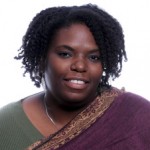
Professor Brown
Master Class: " Gender and Photography in an American Context"
Professor Kimberly Juanita Brown
Department of English
Kimberly Juanita Brown received her PhD from Yale University, and is currently Assistant Professor of English at Northeastern University. She teaches courses on African American and African Diaspora literature and 20th century visual culture. Her dissertation, "The Repeating Body: Literary and Visual Reiterations of Black Feminine Strength," won the Sylvia Ardyn Boone Prize from the History of Art Department at Yale. The book manuscript she developed from that dissertation while at Rice is under review with University of North Carolina Press.
Her second project on ocular exclusion and national subjectivities is tentatively titled "Archives of Indifference: Visual Murder and the American Eye," the project examines images of racialized dead bodies in the New York Times during the tumultuous middle years of the 1990's.
In addition to her scholarly work, she looks forward to the publication of two of her poems in the journal Meridians, "For the Lost" and "So You Die Slowly."

Professor Bucar
Master Class: “The Power of Pious Fashion: The Islamic Veil as Political Critique”
Professor Liz Bucar
Department of Philosophy and Religion
Associate Professor Liz Bucar’s primary research areas are comparative religious ethics, Muslim ethics, and the study of gender and sexuality. In her work, she examines contemporary gender issues and their historical groundings within comparative religious traditions, seeking to understand a given thinker's or community’s argument or practice, while also challenging presumptions about what is "real," "true," and "good.” In her recent book, Creative Conformity, Bucar describes and explains a difference of positions on gender and sexuality within two religious traditions renowned for conservative teachings on sex, Catholicism and Shi'i Islam. Countering scholarship that has viewed the two religious traditions as hostile to feminist claims, Creative Conformity demonstrates how certain liberal secular assumptions about these religious traditions are only partly correct and, more importantly, misleading. Recent articles from Bucar include, “The ‘Invention’ of Lesbian Acts in Iran,” and “Saving Face: Navigating Land Mines with Ritual Politeness in Iran”; her new book, The Islamic Veil: A Beginner’s Guide is forthcoming.
Bucar, holds a B.A. in Government from Harvard University, an M.A. in Religious Studies from the University of Chicago, and earned her Ph.D, in Religious Ethics at the University of Chicago Divinity School. Prior to arriving at Northeastern, Bucar was a Postdoctoral Fellow at Georgetown University and held an Assistant Professorship at the University of North Carolina, Greenboro. Bucar is currently the Secretary-Treasurer for the Society for the Study of Muslim Ethics, the first academic association dedicated to the study of Muslim ethics.
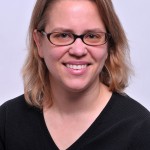
Professor Cram
Master Class: “How Cells Sense and Respond to Mechanical Forces”
Professor Erin Cram, University Scholars Faculty Fellow
Principal Investigator, The Cram Lab
College of Science, Department of Biology
Professor Cram’s research focuses on interactions between cells and their extracellular environment and how they play an essential role in controlling tissue architecture, cell survival, and cell migration. These processes are important for normal animal development and are disrupted in many human diseases. The Cram lab uses the nematode C. elegans to investigate the conserved processes that control cell migration and mechanotransduction in vivo. In collaboration with Chemical Engineers, Dr. Cram also working to improve production of drug compounds by the medicinal plant Catharanthus roseus.
Cram earned her Ph.D. from the University of California, Berkeley. Before joining Northeastern in 2006 she conducted postdoctoral research at Princeton University from 2001-2006. Recent Publications include “CCDC-55 is Required for Larval Development and Distal Tip Cell Migration in Caenorhabditis Elegans” in Mechanisms of Developmentand “A Novel mutation in Beta Integrin Reveals an Integrin-Mediated Interaction between the Extracellular Matrix and ci-1/p27KIP1” in PloS One.
 Master Class: Safe Harbors for Stormy Veins: Preventing Vascular Disease Through Chemical Engineering
Master Class: Safe Harbors for Stormy Veins: Preventing Vascular Disease Through Chemical Engineering
Professor Eno Ebong
Chemical Engineering, College of Engineering
If the heart muscle is a tree, then assistant professor of chemical engineering Eno Ebong is interested in its vascular roots. In particular, she’s investigating how blood vessel plaque growth—a precursor to heart attack—can be controlled by reinforcing the protective sugar coat, called the glycocalyx, that lines our blood vessels. This structure gives our fairly fragile veins and arteries the resilience they need to withstand the raucous fluid environment coursing through them, especially at the branch points where plaques are most prevalent
Her research group applies engineering to study the structure and function of the endothelial cell surface glycocalyx that directly interfaces with flowing blood and sheds in the presence of atherosclerosis. We are using cryopreservation (rapid freezing/freeze substitution) and transmission electron microscopy to define the ultrastructure of the endothelial surface glycocalyx and its changes as a result of the macro- or micro-vessel origin and due to the bio-chemical and -mechanical environment.
Prior to joining us at Northeastern, Ebong earned her B.S. in Mechanical Engineering at Massachusetts Institute of Technology, her doctoroate in Biomedical Engineering at Rensselaer Polytechnic Institute, and was a Postdoctoral Fellow at Albert Einstein College of Medicine and CUNY City College of New York,

Professor Ganguly
Master Class: "Climate Change, Natural Hazards, and Critical Infrastructures"
Professor Auroop Ganguly
Civil and Environmental Engineering, College of Engineering
Professor Ganguly is leading the University Scholars Dialogue to India to study "The Science and Politics of Climate Change in an Emerging Economy."
Auroop R Ganguly is the Principal Investigator of the Sustainability and Data Sciences Laboratory and an Associate Professor within the department of Civil and Environmental Engineering. His research interests span climate change, water sustainability, complex systems analysis, and applied data mining. He has a particular interest in understanding and modeling rare events, from weather extremes to security threats, as well as in enhancing the resilience of critical infrastructures and key resources. His research has been published in journals such as Proceedings of the National Academy of Sciences, Nature Climate Change, Physical Review E, Geophysical Research Letters, and Water Resources Research, and highlighted by the journal Nature, PNAS, and Nature Climate Change, multiple scientific and media venues, as well as by the National Science Foundation, including in their “Faces of NSF Research” section on the October 2012 NSF Current national newsletter. Research articles co-authored by him have been selected as “hottest papers” by two journals, and awarded best student papers in peer-reviewed data mining conferences within computer science such as SIAM Data Mining and NASA’s CIDU, as well as an ACM KDD workshop.
He has been quoted and his research has been cited in the national and international media (such as USA Today, Boston Globe and MSNBC in the US and in Europe, India and China). He is currently serving as an Associate Editor for both the American Geophysical Union’s Water Resources Research journal and for the American Society of Civil Engineering’s Journal of Computing in Civil Engineering, as well as in the Artificial Intelligence committee of the American Meteorological Society.

Professor Madison
Master Class: “Health Policy in an Era of Reform: The Obesity Challenge”
Professor Kristin Madison
School of Law
Bouve’ College of Health Sciences, Department of Health Sciences
Dr. Kristin Madison, a Professor of Law and Health Sciences, writes and teaches in the areas of health economics, health law, and health policy. After receiving her undergraduate degree from the University of California at Berkeley, Professor Madison worked for two years as a research assistant with the health care consulting firm now known as the Lewin Group. She contributed to several articles assessing the impact of the delivery of mental health services. She then received a JD from Yale Law School and a Ph.D. in economics from Stanford University before joining the University of Pennsylvania law faculty in 2001; she came to Northeastern University in 2011.
Dr. Madison’s early work investigated the impact of health care provider affiliations on patient treatment and outcomes. A later series of articles explored health care quality reporting, its regulation, and its implications for medical professionalism, antitrust law, health care fraud regulation, and health care quality regulation more generally. More recently, she has written about the legal, ethical, and policy issues surrounding employers’ use of financial incentives to improve employee health. She is currently examining the relationship between regulation and health policy innovation, as well as ways to reshape health care regulation in light of the greater availability of health care information.
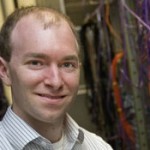
Professor Mislove
Master Class: "Computer Networks: Ethernet and Bridging"
Professor Alan Mislove
College of Computer and Information Science
Alan Mislove is an Assistant Professor at the College of Computer and Information Science at Northeastern University. He was recently a post-doctoral researcher at the Max Planck Institute for Software Systems In the summer of 2005, he was an intern at Microsoft Research in Cambridge, UK, working with Antony Rowstron and Miguel Castro. In the fall of 2005, he moved with Peter Druschel to found the new Max Planck Institute for Software Systems, in Saarbruecken and Kaiserslautern, Germany.
Alan received a Ph.D. from the Computer Science Department at Rice University in May 2009, under the direction of Peter Druschel and Krishna P. Gummadi. He was the recipient of an NSF CAREER Award in January 2011.
His research interests currently lie in the area of social networks, distributed systems, and network measurement tools.

Professor Pollastri
Master Class: “Neglected Tropical Disease Drug Discovery at Northeastern and the Integrated Initiative in Global Health”
Professor Michael Pollastri
Principal Investigator, Laboratory for Neglected Disease Drug Discovery,
College of Science, Chemistry & Chemical Biology
Associate Professor Pollastri’s research focus is primarily in the area of neglected tropical disease drug discovery. His laboratory’s overarching goal is to apply current state-of-the-art drug discovery techniques to find cures for debilitating neglected diseases, which affect over a billion of the world’s poorest people. Since arriving at Northeastern University in 2009, he has built a large number of collaborations across the parasitology community, proselytizing the driving principle of Target Repurposing as a method to accelerate NTD drug discovery. His collaborators are leaders in malaria, sleeping sickness, Chagas disease, leishmaniasis, lymphatic filiariasis; medicinal chemistry efforts are focused on targeting important protein families including phosphodiesterases, kinases, and histone deacetylases.
Pollastri began his academic career in 2007 after nearly ten years working in early stage drug discovery at Pfizer, Inc. While at Pfizer, Pollastri worked on a variety of programs across therapeutic areas, focusing mostly on gene family-targeted medicinal chemistry. He has a strong interest in technology-enabled medicinal chemistry and synthesis, employing green chemistry, parallel synthesis, flow chemistry, and cheminformatics as a means to accelerate the drug discovery process and reduce costs.

Professor Rappaport
Master Class: Advance Airport Security Scanners: How They Work, But Why Superman Wouldn't Be Satisfied with What They Reveal
Distinguished Professor Carey Rappaport
Associate Director of CENSSIS, Faculty Fellow University Scholars Program
Electrical and Computer Engineering, College of Engineering
Professor Rappaport serves as an Associate Director of the Bernard M. Gordon Center for Subsurface Sensing and Imaging Systems. Rappaport has been a professor at Northeastern University since 1987, mentoring scores of undergraduate researchers along the way.
He received dual SBs, SM, and Eng from MIT in 1982 and the Ph.D. from MIT in 1987. Rappaport's research has focused upon developing and integrating electromagnetic, acoustic, and optical sensing technologies to detect hidden objects and to use those technologies to meet real world subsurface challenges ranging from humanitarian demining to noninvasive breast cancer detection.
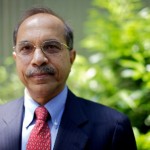
Professor Ramamurti
Master Classes: "Innovating our Way out of Global Poverty"
Professor Ravi Ramamurti
Distinguished Professor of International Business and Strategy and Director, Center for Emerging Markets, D'Amore-McKim School of Business
Professor Ramamurti is a world-renowned expert in emerging markets. He is currently researching the internationalization strategies of multinationals from emerging markets and the nature of innovation in these countries. He teaches courses on the global business environment and global strategy.
Ramamurti is a Fellow of the Academy of International Business. AIB Fellows are “distinguished AIB members recognized for their contributions to the scholarly development of the field of international business.” Morevoer, he was the winner of the European Business School's Prize for Best Paper published in 2011 on Innovation Management (for Govindarajan & Ramamurti, Global Strategy J, 2011) and is currently ranked in the Top 1% of all International Business scholars, based on publications in top IB journals.
He earned his DBA from Harvard University, an MBA from Indian Institute of Management, Ahmedabad, and a BS in Physics, St. Stephens College, Delhi University, India.
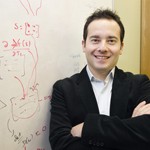
Professor Sipahi
Master Class: “Engineering Complex Dynamic Systems”
Professor Rifat Sipahi
Director, Complex Dynamic Systems and Control Laboratory (CDSCL)
Mechanical and Industrial Engineering, College of Engineering
Rifat Sipahi earned his Ph.D. in Mechanical Engineering at the University of Connecticut and carried out postdoctoral work at the Universite de Tecnologie de Compiegne, France before joining Northeastern University as an Assistant Professor in 2006. Dr. Sipahi is the director of Complex Dynamic Systems and Control Laboratory (CDSCL) which primarily focuses on applying system level approaches to understanding the behavior of dynamical systems with time delays and to creating new approaches for controlling such systems. Some applications of CDSCL are in networked control systems, human motor control, supply chain management, and vehicular traffic flow. In biology, algorithms could help researchers discover inherent delays in how tumors and other diseases grow and spread, which could lead to the development of new treatments. Sipahi has been awarded research funding from the National Science Foundation, the Department of Defense, the Center for Integration of Medicine and Innovative Technology, and MathWorks.
Dr. Sipahi is a Faculty-in-Residence for the Honors Program Living Learning Community in International Village. There he works to support academic excellence, integrate intellectual thought through informal and formal interactions, and provide opportunities for other faculty to interact with students.
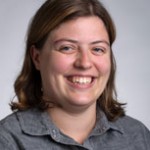
Professor Smith
Master Class: "Can Computers Be Creative? Creativity Support and Computational Creativity"
Professor Gillian Smith
College of Arts, Media and Design & College of Computer and Information Sciences
Professor Smith is an assistant professor in the PLAIT research lab at Northeastern University, jointly appointed between the College of Computer and Information Science and the College of Arts, Media, and Design. She received my PhD in Computer Science from UC Santa Cruz, where she studied with Jim Whitehead and Michael Mateas in the Center for Games and Playable Media. Her dissertation was titled Expressive Design Tools: Procedural Content Generation for Game Designers.
Her research focuses on building procedural content generators that can be controlled by human designers, and thus enable new design experiences. A summary of her research projects is on my projects page. She is also interested in games for education, and issues surrounding women in technology and games.
She is a a co-founder and Technical Director of Play Crafts, a company devoted to building tools to help the crafting community design, create, and share their ideas.

Professor Thrush
Master Class: "How Design Adds Value"
Professor George Thrush
Director of the School of Architecture, College of Arts, Media, and Design
George Thrush is Director of the School of Architecture. His articles include “Ring City: Civic Liberalism and Urban Design” and “Boston’s New Urban Ring: An Antidote to Fragmentation”. His work seeks to connect transportation, urban design, and civic image in an increasingly privatized economic arena. He received his B.Arch. from the University of Tennessee in 1984, and his M. Arch. from Harvard University in 1988. In 2005, his work was celebrated with his entry into the American Institute of Architects College of Fellows.
His research, practice, writing, and teaching all revolve around contemporary urban issues in architecture. The School he heads focuses on design solutions for Boston’s “post-industrial landscape” of former transportation infrastructure and other difficult sites. He is among the primary authors of a comprehensive regional transportation and development proposal for the Boston metropolitan area called The New Urban Ring.

Professor Urman
Master Class: "The U.S. Supreme Court: Dimensions of Diversity"
Professor Dan Urman
Faculty Member and Director, Doctorate in Law and Policy Program
Daniel J. Urman is a faculty member and the director of the Doctorate in Law and Policy program. He developed and teaches undergraduate and graduate courses in the areas of political science and law and public policy at Northeastern. Mr. Urman has worked on several political campaigns, including the past four Democratic National Conventions. He serves as a writing coach for the Posse Foundation, a college access organization that received a portion of President Obama's Nobel Peace Prize Money.
Previously, Mr. Urman worked at large law firms and served as an assistant district attorney in the Suffolk County District Attorney's Office for the Commonwealth of Massachusetts. Mr. Urman was a Marshall Scholar at the University of Oxford.
